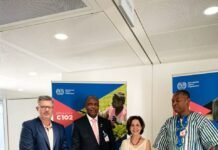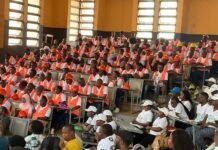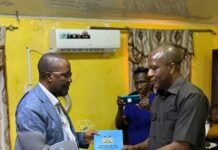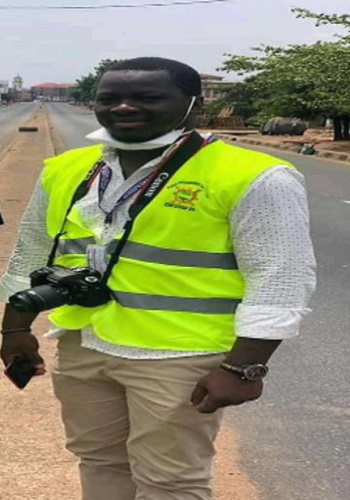By Melvin Tejan Mansaray
The Executive Director of Citizen’s Advocacy Network (CAN), Thomas Moore Conteh has in a preliminary observation and recommendations update on the national lockdown highlighted some positive and negative impacts caused by the coronavirus disease outbreak in Sierra Leone.
Sierra Leone on 31st March 2020 announced the recording of its index case of coronavirus infection and the number has increased to six confirmed infection cases; no death and close to one thousand people in quarantine, Dr. Harold Thomas, Head of Communication and Outreach,
Ministry of Health and Sanitation.
“The lockdown is to stop the chain of transmission, detect any new case through surveillance, contact tracing, and treatment,” Harold Thomas said.
According to Thomas Moore Conteh,
CAN is among a handful of accredited Civil Society Organizations (CSO) monitoring the ongoing lockdown exercise,
underlining that it had its Social Workers on the streets of the length and breadth of the country’s capital, Freetown and other parts.
Freetown is Sierra Leone’s most populous city and is the melting pot of the country’s economic, commercial and social activities.
On Sunday 5th April 2020, the whole of Sierra Leone was ground to a three days halt with the State’s imposition of a national lockdown in a bid to prevent the spread of the coronavirus disease outbreak for a period of seventy-two hours (three days).
Underscoring some highlights and lowlights of day one of the three days national lockdown (Sunday 5th – Tuesday 7th April 2020).
Thomas Moore Conteh observed that:
“Generally, Sierra Leoneans complied with the regulations, people stayed indoors, but however, there were isolated cases around the Eastern part of the City in particular where citizens had to breach the lockdown regulations and came out in search of water. Areas like Mountain Cut, Kissy Road, Fourah Bay Rd, Upgun, etc.”
Water is not the only essential commodity that has posed a threat to compliance with the lockdown measure,
Moore also discovered that electricity is another.
“There is also an outcry for electricity supply in areas around Hastings, Yarms Farm, Jui, Bo, Kenema, etc,” Moore said.
Compliance and the role of the Security Forces during the lockdown has been a serious consideration in the front line response.
Thomas Moore Conteh said: “The Security Personnel did their best though there were some isolated cases wherein they manifested high handedness.”
CSP Brima Kamara, Police Spokesman said compliance was overwhelming but confirmed few incidents of lawlessness, including the stabbing of a Police Officer by allegedly a Minor.
Poverty is the biggest pull factor on the three days lockdown as many people are leading a subsistent lifestyle, living by hand to mouth. The picture painted by Moore is grim, noting that:
“The homeless were virtually neglected.”
CAN say that its observations and recommendations will be meaningless if it fails to intervene on the plight of the people in dire need, the poor, providing them (homeless, beggars, PWDs, etc) with food packs.
The issue of accreditation and passes for the unrestricted movement of essential service workers has also not gone unnoticed.
The CAN Executive Director, Thomas Moore Conteh said, “
We had a handful of Media, CSO’s and Medical Practitioners with passes,” adding, “
there is a need to provide passes for the aforementioned practitioners. Their services are very vital in times like these.”
CAN is a Civil Society Organization that deals with democracy, rule of law; promoting the SDGs, peace, freedom, respect, hope and human rights. It prides itself on promoting and upholding equality and human rights ideals and laws across Sierra Leone.






























